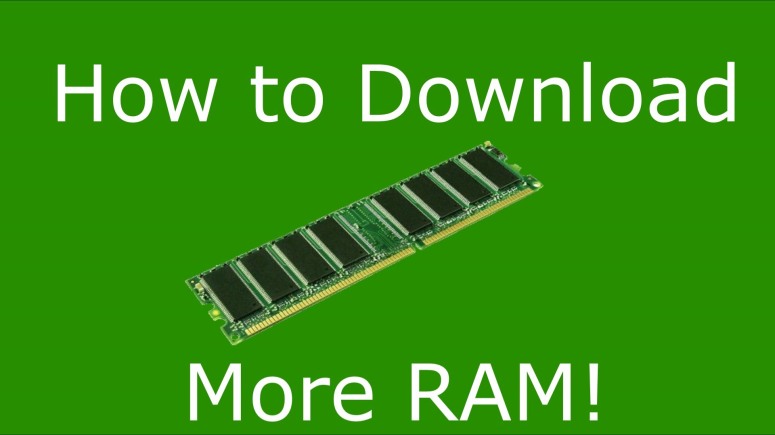I’m no perfectionist, but when I see something wrong, it ticks me off. For example, in grammar, depending on the gravity of the mistake, I either cringe a little bit, chuckle, or when it’s obviously wrong for even a child in preschool, I bluntly correct them out loud. The same thing goes for facts, when I know that whatever’s being said or taught is wrong. Call me pedantic but I think that having the instinct of knowing that something wrong and correcting it is a skill people should have. After all, what’s wrong with knowing what’s right and true and doing something about it?
What really grinds my gears, next to grammar mistakes, are computer myths and misconceptions (a little forced?).
So here are my top most annoying Computer Myths and Misconceptions
CPU

This one I blame on elementary believe it or not, it’s still being taught in schools especially in elementary that this (picture above) is a CPU.
IT’S NOT!
It is a System Unit or Computer Tower or Case or Chassis/Cabinet. It has many names and CPU is not one of them.
The CPU is actually a little chip located inside the System Unit
liek dis
USB

Another common error in the same vein as the “CPU”. I don’t hear this as much as I did back then, which makes it all the more annoying when I do. It’s called a USB Drive, Flash Drive, Pen Drive, etc. While it technically is a USB device, calling it by just “USB” is like saying that 2 is 1 since it’s halfway there.
Almost correct still isn’t correct
More RAM = Faster Computer

This one’s a little bit technical. It’s typical that having more available resources, say RAM, makes your computer run faster. This is true, but only to a point. A windows computer with 4 GB of RAM will run surely run faster than it’s 2 GB counterpart and there are still gains to be had if you upgrade to 8 GB which is the. Beyond this threshold, you start to get diminishing returns. This is because RAM has a negligible effect on overall performance. You gain more performance upgrading a low RAM computer (2-4 GB) since you provide enough ram for the Operating System and other background tasks to run without sharing with other applications. Having more RAM means you can run more applications simultaneously, not necessarily a faster computer.
The same thing goes for VRAM, which is the memory allotted for GPUs or Video Cards. Don’t be fooled, a lot of GPU manufacturers have this gimmick to include more VRAM to relatively weak GPUs to attract ignorant customers. A old mid-high end 1 GB GPU can beat a modern but weak 4 GB GPU.
Less Available Storage = Slower Computer
When your computer is running slow, you’ve probably heard advice that you should delete some files because your storage is running low. They couldn’t be further from the truth. The amount of storage used does not affect your performance, unless you’re using a page file and/or your drives are completely full. More occupied storage does not degrade your computer’s performance.

This is a screenshot of my current computer. As you can see, I don’t really have that much available storage. But, it runs faster than when I bought it, maybe even faster than a brand new desktop/laptop computer.
It’s all about management and maintenance. Your computer is running slow because you have too many applications/programs running in the background. A brand new computer probably isn’t performing at its best because of bloatware, the preinstalled software that comes with your computer such as a trial antivirus, “maintenance” applications, and other third-party software which take up much of your precious RAM and disk space.
So next time your computer runs slow, don’t delete those precious memories,
Blame the Bloatware
You can’t leave your computer running for a long period of time
This one I dedicate to my loving, paranoid parents. Mom, Dad, I’m sorry to tell you that it’s okay to let computers run all day, how much more overnight. We’re not living in the 90s where computers use up a lot more power and produce a lot more heat. Current computers are designed to run for a very long time.
In fact, at the time of writing, my computer’s Up Time is more than 8 days (proof below). This means that it’s been powered on (on in sleep mode) the whole time without a restart. And it’s still perfectly fine, temps are low and definitely no slowdowns.

Computers today are extremely power efficient compared to before. A typical computer under load uses half as much as a refrigerator (~150 Watts) but only uses about 50 Watts when idle and as low as 5 Watts when in Sleep mode. Computers also have fans that keep its components cool which automatically turn off when temperatures go under a certain limit.
There’s nothing wrong with leaving a computer running for a few hours or even days, as long as you have proper cooling and equipment. You only really have to turn a computer off when it’s not in use or when you’re going to clean it.
My dear parents, based on my research,
I therefore conclude that there’s nothing wrong with leaving the computer on overnight when I’m downloading 🙂

